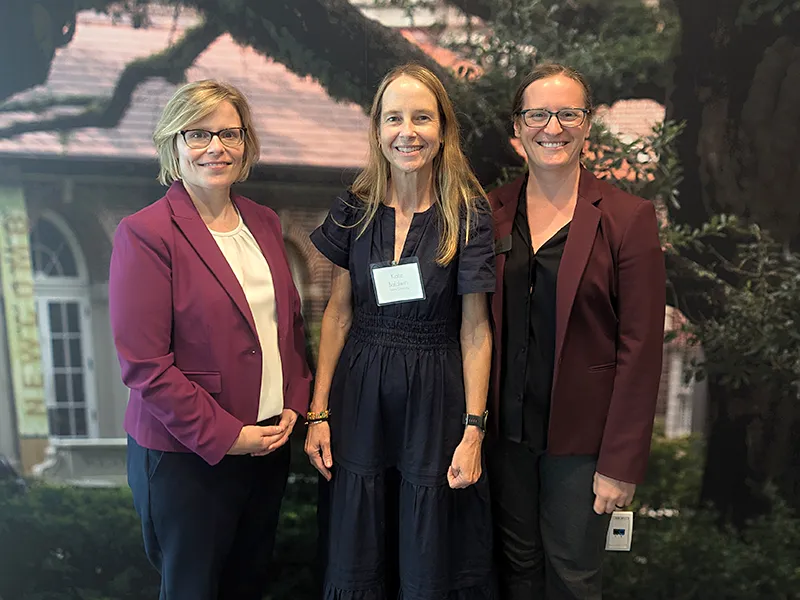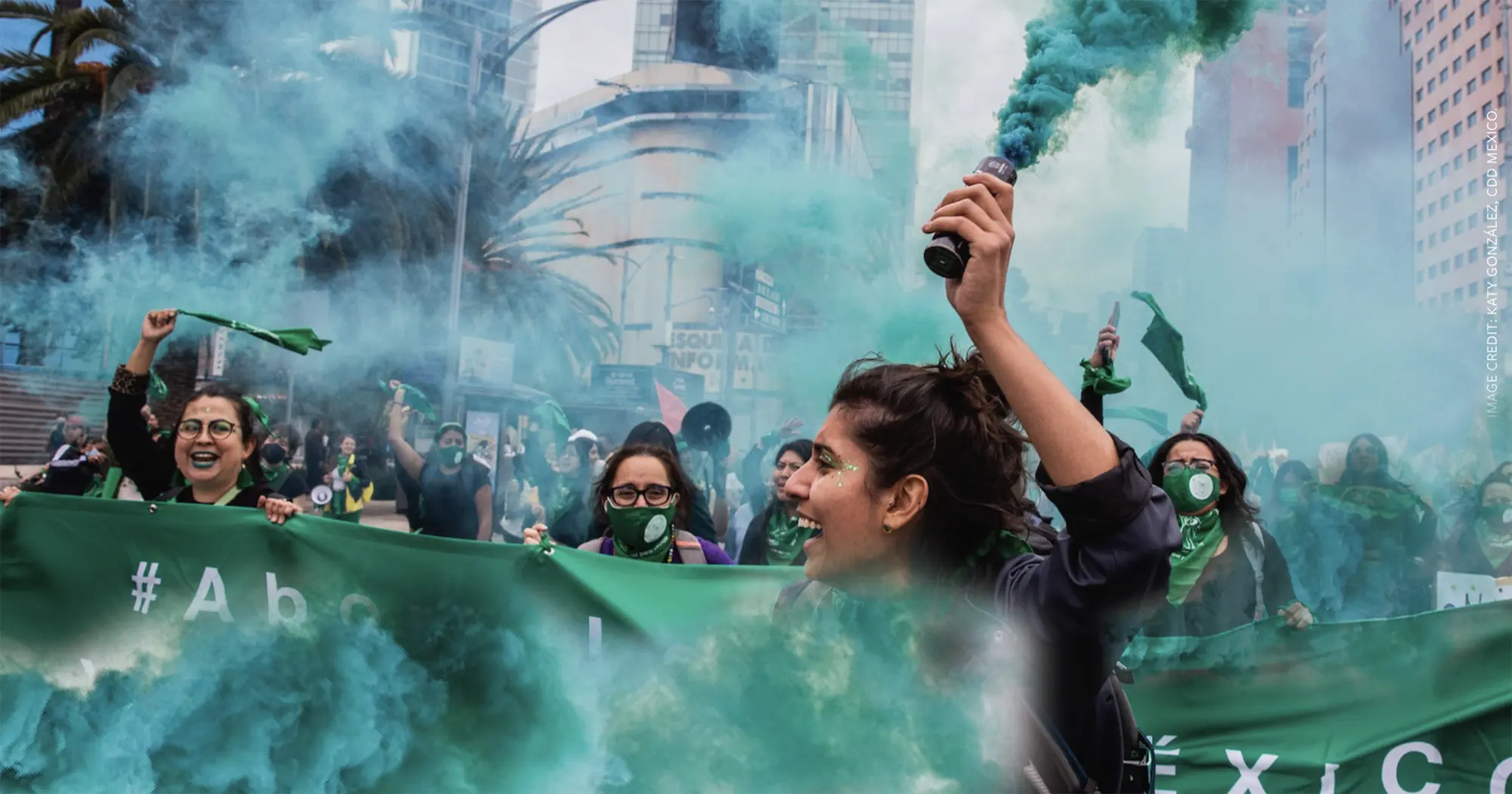

Originally published in the 2024 issue of the School of Liberal Arts Magazine

What might it look like to bring together scholars from around the world with local activists, students, and people who work in reproductive health and reproductive justice? When SLA faculty Kate Baldwin, professor of English and Communication, and Karissa Haugeberg, associate professor and Eva-Lou Joffrion Edwards Newcomb professorship in History, with Senior Professor of Practice and Director of Research at Newcomb Institute Clare Daniel, were awarded a $225 thousand grant from the Mellon Foundation to host a prestigious Sawyer Seminar on reproductive justice in the Gulf South, they began an in-depth exploration into this question. The seminar, The New Green Wave: Reproductive Justice in the Gulf South and Beyond, kicked off in October 2024. Below, Baldwin and Haugeberg share a preview of what else we might expect in the coming two years.
When we tell people about the grant, one response we get frequently is “What is reproductive justice?” This is usually a good place to start because, for the purposes of our Sawyer Seminar, we follow SisterSong’s definition of reproductive justice as “the human right to maintain personal bodily autonomy, have children, not have children, and parent the children we have in safe and sustainable communities. “This helps people understand, for example, the critical links between racial justice, environmental justice, and reproductive health and rights. Our seminars will include scholars and partners from many disciplines and backgrounds. One of the best things about this grant is our opportunity to collaborate with community partners while also connecting with international scholars working on reproductive justice in other national contexts. Our kickoff began with a symposium in October — International Movements for Reproductive Health and Justice — featuring scholars visiting us from nations including Ireland and Mexico.
In conceiving this seminar series and related activities, it has been very important to us to think outside the box. For example, whenever possible, we plan to rethink the traditional academic conference format, in which scholars typically read and respond to written papers. For the October conference, each panel paired visiting scholars with a local community partner. Our conference partners included some of the most dynamic voices in reproductive justice and health in Louisiana. Petrice Sams-Abiodun, vice president of Strategic Partnerships at Planned Parenthood of the Gulf South; Tyler Barbarin, director of Grants and Development at the Louisiana Abortion Fund; Alex Moody, staff attorney for Lift Louisiana, an organization that advocates for women’s reproductive health, rights, and justice in Louisiana; Martha Silva, professor of Public Health and Tropical Medicine, Tulane University; and Latona Giwa, executive director of the Midwest Access Project, a national nonprofit that seeks to improve the lives of marginalized women and their families. A moderator introduced each guest, asked the community partner to describe their organization’s relevant work, and then asked the scholar for an example from their research to demonstrate the past or present state of reproductive justice or health, from their perspective. Finally, and perhaps most importantly, we reserved time for the panel of scholars, activists, and practitioners to engage in conversation about the ways their research interests and work experiences intersected. These panels were organized around themes that include history, Latin America and the borderlands, parenting, and injustice.
One of the first things we did after brainstorming this format was host a meeting with potential community partners — inviting them to the literal and figurative table to provide feedback on our proposal. We discussed the best practices for using humanities and the arts to have an impact within our communities without it being a one-way street, to open a dialogue in which our invited scholars are learning from our community members, and vice versa. Our community partners advised us how to best shape our seminars. For example, one of our community partners advised that if we want to engage a range of communities, we should be creative in where we host our events, and take into account access to transportation, parking, and childcare. Another community partner suggested that we might encourage audience participation with table readings of a play, story workshops, or artist demonstrations. Could we include a skill-building workshop within each seminar? For example, have a follow-up workshop on how to do grassroots messaging, or how to tell stories effectively for advocacy, how to use media and/or disseminate research for public engagement? We also talked at length about ethical research within communities.
Finally, we have been thinking about the impact, the longer-term piece that will be archived so that the seminars can be accessed and stored for posterity and future engagement. Highlighting dialogue between scholars and activists and underscoring what they can learn from each other are distinguishing features of our seminar. To help achieve some of these goals we’ve hired a graduate student assistant, Darcy Roake, who is completing a PhD in History, and a postdoctoral fellow, Sarah Hedgecock. In addition to helping us plan the upcoming seminars, they have created a website and are working on a podcast series so that people can continue to engage with the materials from the seminars and build upon the exciting work done throughout this project.
The Green Wave or Green Tide (“Marea verde” in Spanish) is a grouping of abortion-rights movements in various countries in the Americas that have collectively adopted the color green as a symbol of their movement and successfully pushed governments to expand abortion access in multiple countries across Latin America, a region known for some of the strictest anti-abortion laws in the world. While Latin America is a diverse region with a large range of abortion policies, the Green Wave has made its way across the area and has had a profound impact on abortion policies.

